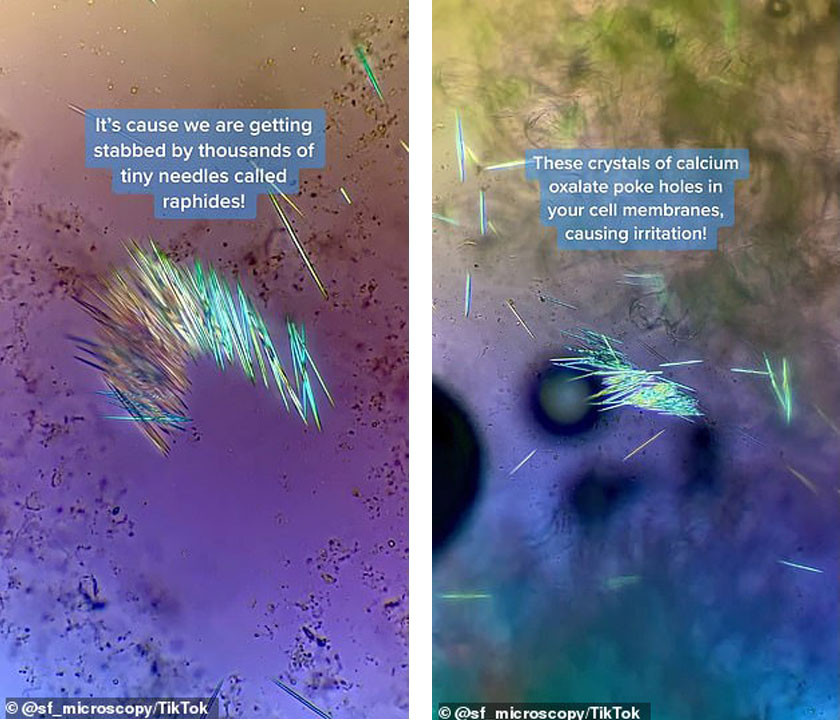When you eat pineapple, you’ve probably felt a tingling in your mouth. A scientist explained why your mouth tingles after eating pineapple, and this reason seems really surprising.
The unnamed expert, who manages the US-based TikTok account SF Microscopy, made some statements about the popular fruit on the video sharing platform. He said this tingling sensation is actually caused by “thousands of tiny needles” that pierce cell membranes when you eat the fruit.
The video, which caused some viewers to decide never to eat pineapple again, paints a rather surprising image. In the video, which has been watched more than 35.8 million times so far, the scientist takes small samples of pineapple with a forceps and places them on a microscope slide for a closer look.

The video then details the results of the examination, revealing dozens of tiny pointed, needle-like structures. At this point, the voice-over accompanying the video said, “Why do our mouths tingle after eating pineapple? That’s because thousands of tiny needles, called raffides, pierce us,” he explains. “These calcium oxalate crystals cause irritation by poking holes in your cell membranes.”
However, the expert also states that this will not prevent him from eating the delicious fruit.
Explaining in more detail in the caption, he says: “One of my favorite fruits is pineapple, but every time I eat pineapple, my mouth tingles. I read that the fruit contains raphides!
Kiwi, grapes, taro and Jerusalem artichoke also contain large amounts of these crystals.
These needles act as a defense against herbivorous insects, deterring them from eating the plant’s fruit and protecting the seeds.
The needles work in conjunction with other chemicals in pineapple, such as bromelain, to enhance the effects.”
Bromelain is a type of enzyme that dissolves the protective mucous membrane that covers your tongue and the roof of your mouth. This causes the sensation caused by the raffits, as well as the natural acids in the fruit, to have more of an effect than usual.